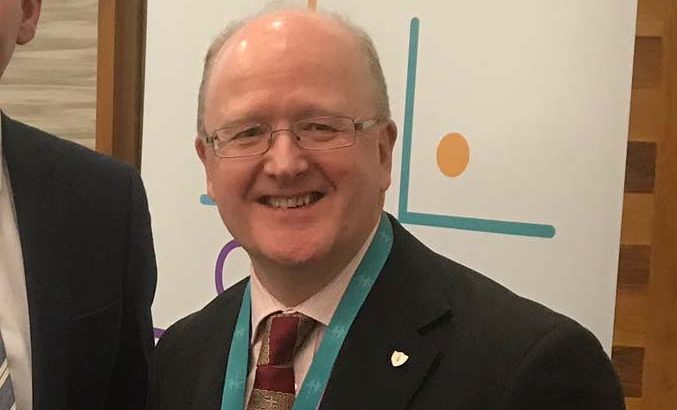Seamus Mulconry, born in a Mother and Baby Home, tells Ruadhán Jones that we need to acknowledge our own societal failings
Seamus Mulconry is the general secretary of the Catholic Primary Schools Management Association and remains a staunch defender of Catholic schools. He is also one of the thousands of children that passed through the mother and baby homes. His experience of the homes was, in the end, a fruitful one and hasn’t altered his view of the Church or his faith.
“You see, you have to remember that my adoption was arranged through the Church,” Mr Mulconry says. “So I have always been thankful to the Church for the fact that I had such a wonderful family. My father and mother always were quite open about it. But they were absolutely quite wonderful parents, and my dominant memory of my childhood is of complete security and being totally loved. And not only had I wonderful parents but the extended family there were lots of uncles and aunts and a number of people, I’m not sure how we’re related to, who were also equally nice to me.”
Local
Initially, Mr Mulconry’s parents were approached by the local curate, who “had come across a girl who was in trouble, as they said at the time”, Mr Mulconry explains.
“He came in and asked my father who was a shopkeeper, would you like a son,” Mr Mulconry continues. “My father said, yes, but I better check with the wife before I agree. So he went in and asked my mother and she said yes. Now somehow I think that adoption fell through it didn’t work out and my adoption was arranged by a local nun.
“As far as I was concerned, I owed the fact that I had a wonderful family to Church, so I never had any negative feelings towards the Church because of that. When people talk about victims or survivors, I can’t claim to be either. If there was a Euro lottery for getting your family, I won it, so I have no complaints at all.”
But Mr Mulconry is well aware of the hardships others went through. He read through the executive summary of the recent Mother and Baby Homes Report, calling the story it tells “heart breaking”.
”But when I do read what happened to other people, and I read the Executive summary which is about 100 pages,” he says. “It really is heart breaking that so many children didn’t have a childhood or didn’t have the simple pleasures of a childhood that we all remember years later. There are some really sad stories out there and when you think of the numbers involved, the statistics are huge, but behind each of those statistics there is a human being and, in many cases, a human being who was robbed of a safe secure family life when they were young. It is no matter what way you look at it a tragic story.”
Radio
Shortly after the release of the report, Mr Mulconry went on radio to defend the Catholic Church’s involvement in local schools. While he doesn’t find these encounters frustrating, he suggests that “demonising the nuns” isn’t the mark of an adult society.
”The mark of an adult human being is that they take responsibility for their own actions,” Mr Mulconry says. “The mark of an adult society is that we stand up and take responsibility for our actions as a society. People have demonised the nuns and I’m sure that there were cruel and vindictive and all kind of things. But the nuns were cleaning up somebody else’s messes.
“There were fathers who abandoned women and left them to their own devices. There were families who didn’t stand by their children. Now, that was all of us. If you were to quietly go through and talk to people, you’ll find very few families who didn’t have an unwanted child somewhere in their history or some connection with that whole practice. We as a society, we as a people did that and not to push all of the blame onto either the Church or the state.
“Now the Church and state were culpable. If you look at the treatment meted out to some people… I’ve been reading the Gospel recently and I cannot understand the gap between what is said in the Gospel and what was done to some people. The gap is so extraordinary. You never see Christ being judgemental with sinners and yet we had so much judgementalism in the Church in Ireland.”
Generation
Mr Mulconry is wary of judging the generation that went before, believing that in our own times there is plenty which may be a cause of shame in the future.
“I’d be very slow for this generation who have access to far greater wealth than our ancestors ever did to be sitting in judgement over them,” he says. “But I often wonder in 20- or 30-years’ time, will people be looking back at us and asking, how could you let such a thing happen? I was in a deprived area of a city recently in a school where I was trying to do something for them, and I was asking about local leaders in that community. I was told there are no local leaders other than the drug dealers. How can we as a society let that happen? Look the world isn’t perfect and I’m not so sure that when people will look at us in the future that they’ll think we’re perfect either.”


 Ruadhán Jones
Ruadhán Jones Seamus Mulconry
Seamus Mulconry 